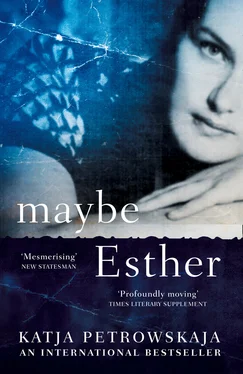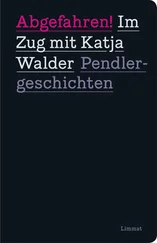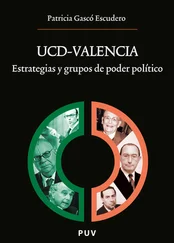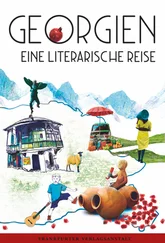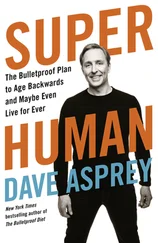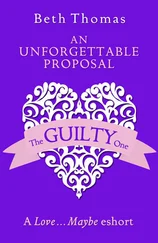I had no reason to suffer. Yet I did suffer, from early on, although I was happy and loved, and surrounded by friends, embarrassed to be suffering, but suffering still with a loneliness that ranged from razor-sharp to bleakly bitter and I thought it stemmed only from a feeling of missing out on something. The luxurious dream of a big family at a long table followed me with the persistence of a ritual.
And yet our living room was full of my father’s friends and my mother’s adult students, dozens of students who always stood by her until in time, there were several generations of them at our table, and we took the same photographs as other families: against the backdrop of the dark floral curtains lots of merry, slightly overexposed faces, all turned toward the camera, at a long, beautifully decorated table. I don’t know exactly when I first picked up on the hints of discord during my family’s loud, exuberant festivities.
You could count the list of those who could be considered part of my family on the fingers of two hands. I had no need to practice the piano scale of aunt, uncle, cousin, first cousin once removed and her husband, cousin, and great-uncle—up and down, up and down, and I was terrified of that piano, that aggressive totality of the keyboard.
In an earlier time, before we had our big dinner parties, a large family was a curse, because relatives could be members of the White Army, saboteurs, noblemen, kulaks, overeducated “ enemies of the people” living abroad, their children, and other dubious characters, and everyone was under suspicion, so families suffered a convenient loss of memory, often in order to save themselves, even though it rarely helped, and on special occasions, any relatives who might fit these categories were generally forgotten, often hidden from the children, and families dwindled; whole branches of the family were erased from memory, extended families were pared down until there was nothing left of them but the joke about the two men with the same last name who are asked if they’re related. Certainly not, they reply: we don’t even have the same last name!
One day, the relatives from deep in my past were suddenly standing in front of me, murmuring their merry messages in familiar-sounding languages. Well then, I thought, I’ll have them make the family tree blossom, fill in the gaps, and mend the feeling of loss, but they crowded together in front of me without faces or histories, like fireflies of the past that shed light on small spaces around them, maybe a couple of streets or incidents, but not on themselves.
I knew their names. All these Levis—the name of my great-grandmother, her parents, and her siblings—would be scattered around the world if they were still alive. I knew that there were Gellers or Hellers; no one knows exactly which. I knew about a Simon Geller only from a note in Russian, a translation from a Hebrew newspaper that is no longer available anywhere. I knew the last Krzewins, the descendants of the Hellers, the relatives with the name that crunches like snow under your feet, like kovrizhka , gingerbread, between your teeth. There were also the Sterns, which was my grandfather’s name until he was twenty. My name would be Stern as well if the Russian Revolution hadn’t triumphed, and that was the name of his many brothers and sisters, his parents, and their many brothers and sisters, and his grandparents with their entire clan, if there were truly as many of them as I liked to imagine.
My distant relatives, Krzewins and Levis, had lived in Łódź, Kraków, Kalisz, Koło, Vienna, Warsaw, Kiev, and Paris, up to 1940, as I realized only recently, and in Lyon, my mother told me. Ruzija attended the university in Vienna, and Juzek studied in Paris, I recall my grandmother saying. I never learned who Ruzija and Juzek were; they were simply relatives of mine. Maybe it was the other way around: Ruzija studied in Paris and Juzek in Vienna. The word conservatory came up, but I don’t recall to whom it applied. And I recall being told that Ruzija and Juzek had to clean the sidewalk with a toothbrush. In Łódź, Kalisz, Warsaw, it was perhaps still vacation time, and at the conservatory the semester had not yet begun; they were at home and not in Paris or Vienna. When I heard this as a child, I thought their location was Switzerland, because our newspapers were reporting that in Switzerland everything was squeaky clean, and some people made a habit of squatting with little brushes and shampoo in front of their houses and scrubbing the sidewalk. I pictured the country drowning in soap bubbles, this country—or another—in its gleaming, unattainable spotlessness.
Some of my relatives’ names were so common that it made no sense to look for them. It would have been a search for people who happened to bear the same name, because in the lists they all appear together, next to one another like neighbors, intermingled, and mine cannot be distinguished from hundreds of others with the very same names, and anyway it would not have been possible for me to distinguish my family from strangers the way you separate wheat from chaff, seeing as it would have been a selection , and I didn’t want that, not even the word. The more of the same name there were, the less likely was the chance of finding my relatives among them, and the less likely this chance was, the clearer it became to me that I had to consider each person on the lists one of my own.
I painstakingly compiled their names, tracking down every Levi, Krzewin, Geller or Heller, and at some point, when I was standing in Warsaw’s military church facing the long lists that ran from wall to wall in tiny print, lists with the names of the dead from the Katyń massacre—why do we automatically look for our own names even in the lists of the dead?—I found Stanisław Geller on the lists and, in the chapel of the Katyń military church, I declared my affinity with all namesakes, including Stanisław, as though he and everyone I had yet to find also belonged to my family, all the Gellers and Hellers, and all the Krzewins and Sterns. Every Stern seemed like a secret relative, even those as remote as stars in the sky.
Years earlier, when I was in New York, I leafed through the yellow pages, the yellowed pages of an old phone book. Where are my grandfather’s brothers and sisters? Where are his father’s brothers and sisters, whose name was Stern and who had disappeared from Odessa in every direction? Were their descendants singing with the Velvet Underground? Did they have a bank? Were they teaching in Massachusetts, at MIT, or were they still working in a shoe factory? After all, somebody’s got to be working.
There were many Sterns in the phone book. Eight whole pages. Yellow-star Sterns in the yellowed phone book. Should I call up each one of them and ask? What did you do before 1917? Are you still waiting for the poor relatives from the east? Even after a hundred years? And the luminaries, should I include them on my list, or should they include me on theirs?
Who told me that one of our Levis was a bookkeeper in a button factory in Warsaw? Another Levi made the 501 jeans, the best ones I knew back when I began my search. He surely wasn’t one of us; I can’t imagine that someone in my family could have a yen for profit or any idea of how to seize opportunities that came along. As my thoughts continued to turn to the button factory in Warsaw or elsewhere, my conviction grew that no one who had remained in Poland could have made it onto a list like that.
I recalled a rescue list I’d seen in a movie, and I went through it as though it were possible that someone from my family could be recorded there and thus rescued, showing up on the Internet. I read one name after the other as though in search of winning numbers, as though I would have recognized someone.
Читать дальше
